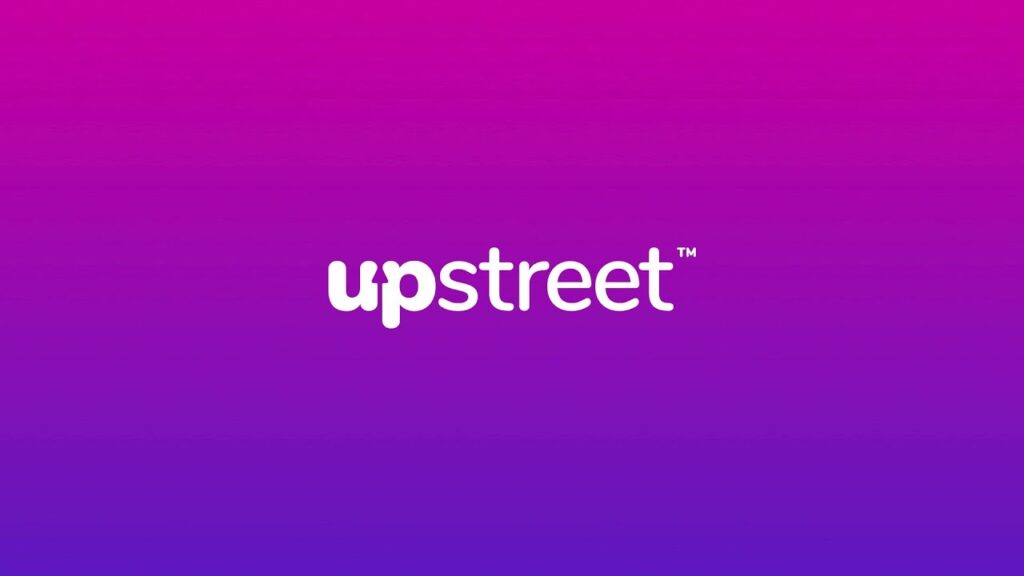
Updated 31st October 2023: Upstreet has since closed down after four years of operations.
Card-linking and bank account-linking is booming in a big way, and Upstreet is one example of how this emerging technology is enabling new ways for brands to reward customers.
What is Upstreet?
Upstreet is a mobile app and website browser extension which allows members to earn fractional share (or fractional stock) rewards when they shop with over 400 Australian and international brands.
Whereas many card-linking and bank account-linking rewards programs will provide a straight up cash reward, Upstreet returns the cashback reward in the form of fractional ownership of shares in participating companies.
Upstreet have employed various additional tactics to make the experience of share ownership more engaging, including designing lifecycle communications to focus on member success and knowledge about share ownership. The company has also recently explored share gifting and digital games.
Owning a (fractional) slice of the pie
A fractional share (or stock) is defined as owning less than one whole share of a company. Fractionalised assets and the ‘ownership economy’ are emerging trends within the fin-tech and blockchain technology space, as seen by the growing impact of NFTs on loyalty and rewards.
Broadly speaking, a potential upside of fractional shares is that it lowers the barriers of entry for higher-valued stocks. This provides an opportunity for new and existing customers to get access to otherwise inaccessible companies.
How does Upstreet work?
Members sign up, download the app or browser extension, and link their bank account and/or credit/debit card. When the member transacts with any of the 400 brands via the app, they earn a share reward from the brand partner they shopped with.
For each purchase, members receive a percentage back in the form of shares which is funded by the partners. The percentage is different for each participating brand, and some will have additional earn opportunities.
For example, existing and new Marley Spoon customers earn 2% of the purchase value in fractional shares with every purchase. On the tenth purchase, they will receive double the share rewards from the first nine purchases. As an additional promotion, new customers can also receive a one-off lump sum of $45 of MMM:ASX fractional shares with their first purchase, in addition to discounts off their first four meal boxes.
Technically speaking, how does Upstreet do it?
Upstreet purchases whole shares or exchange-traded funds (ETFs) and puts them into the Upstreet Fund (a unit trust). When a member earns a share, a member is earning a piece of the unit trust.
Can fractional share rewards lead to customer loyalty?
Fractional shares as a reward are a relatively new concept – the key players in the space being Bits of Stock, Bumped and Upstreet. Each claim that fractional share rewards can help a brand to increase customer loyalty which leads to greater basket size, increased purchase frequency and an improvement to overall customer sentiment.
Research does suggest that share ownership can result in higher customer retention and purchases.
A 2009 study found that becoming a stockowner of a company did lead to a positive increase in several motivational factors for a large proportion of individuals[1]. These motivational factors included an increase to the likelihood of: purchasing a company’s products and more of it, engaging in positive word-of-mouth, preference over competitor products, and purchasing a company’s product despite a premium or price increase. The author did note that the use of self-reported data did limit the results in terms of an individuals’ perceived behaviour versus reality.
One may also question whether fractional stock ownership would have the same level of psychological influence on an individual as it does for whole ownership. Fractional ownership does not usually entitle access to the same rights as whole investors, like voting rights and dividends, and is often tied to a particular platform. Another important question to ask is, what would happen if the value of these fractional share rewards were to go down?
Another more recent study found that when users of the Bumped platform were rewarded with stocks from a specific purchase, they perceived it as a gift from the company, and were therefore more likely to return the favour and shop again – capitalising on the norm of reciprocity. The researchers concluded that owning a stock does make people feel more loyal towards a company, and stock rewards increase overall investment activity.
Are fractional shares a viable loyalty reward?
The idea of receiving $1 of Marley Spoon shares as a reward for an upcoming meal box may not be attractive to everyone, but it will be for some.
It would be difficult for any brand to try to appeal to all members of their loyalty program with only one reward element; building long-term relationships with customers requires the opposite of a one-size-fits-all approach.
An owner of fractional Marley Spoon shares may encounter cognitive dissonance when faced with an amazing offer from a competing meal subscription service such as HelloFresh. Perhaps the accompanying psychological influences are enough for a company to justify using fractional shares as an additional tool in their retention repertoire.
One thing is certain, fractional shares offer brands an alternative mechanism to incentivise or reward customers which does not involve discounts or pure cash. Rather than the usual cashback programs which face the limitations of monetary rewards, the vested interest provided by stock ownership could increase the likelihood that a member feels stronger affinity to one brand over another.
[1] Jaakko, A. (2009), Stock Ownership as a Motivation of Brand-Loyal and Brand-Supportive Behaviors, Journal of Consumer Marketing, Vol. 26

